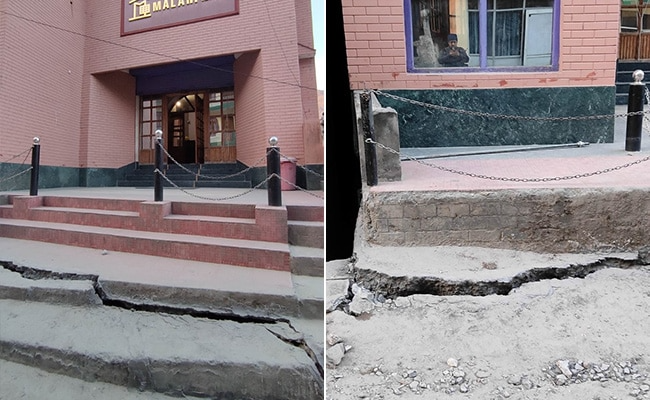Almost half a century ago, in 1976 to be precise, an 18-member committee warned the government that the town of Joshimath is “geologically unstable” and suggested several restrictions and remedial measures.
The committee, under the chairmanship of then Commissioner, Garhwal Mandal, Mahesh Chandra Mishra, was set up to probe the cause of landslides and sinking of Joshimath town. In its report dated May 7, 1976, it suggested restrictions on heavy construction work, agriculture on slopes, felling of trees; construction of pucca drainage to stop seepage of rainwater, proper sewage system, and cement blocks on river banks to prevent erosion.
Amid the current crisis, the Congress and BJP are now blaming each other for failing to implement the recommendations of the report.
The study noted that the area is geologically unstable, resulting in landslides, road breaches, and localised land subsidence. However, the increase in construction activity and population, has only added to the biotic disturbance. The report had further concluded that heavy construction projects were undertaken in the area after 1962, without adequate systematic provisions for regulated drainage, leading to the percolation of water which ultimately causes landslides.
It also drew attention to the indiscriminate felling of trees: “…Trees are important as they act as mechanical barriers to rain, increase the water conservation capacity and hold the loose debris mass. Natural forest cover in the Joshimath area has been mercilessly destroyed by a number of agencies… Landslides and slips are the natural outcomes”.
The report pointed out that Joshimath is situated on a deposit of sand and stone, and is not suitable for a township. Vibrations, caused by blasting and heavy traffic, will also lead to disequilibrium in natural factors, it said.
Suggesting remedial measures, the report said heavy construction work should only be allowed after examining the load-bearing capacity of the soil. For road repair and other construction work, it would be advisable not to remove boulders by digging or blasting the hillside. In the landslide-prone areas, stones and boulders should not be removed from the bottom of the hill, as it will cause loss of support, it said.
“Cutting of trees for supplying the township with timber, firewood, and charcoal may be strictly regulated and no tree should be felled in the landslide area. Agriculture on slopes must be avoided. Instead, a massive campaign to plant trees and grass should be undertaken to conserve soil and water resources,” it said.
“Joshimath area is on permanent tectonic zones, which might be active in present times. Water seepage in the area is profuse. Therefore, to prevent any more landslides in the future, it is a must to stop the seepage of open rainwater below. Hence, the construction of a pucca drain system is a vital necessity. Construction of proper drainage, as has been done at Nainital where a portion of Mall (Road) was sinking, must be undertaken immediately,” the report stipulated.
According to data provided by the Chamoli district administration, there are around 3,900 houses and 400 commercial buildings in the Joshimath area, spread across 2.5 square kilometres. About 195 houses were built as part of the PM Awas Yojna.
By Monday evening, cracks were reported in 678 of these houses and structures. With 27 more families being relocated on Monday, a total of 81 families have been shifted to temporary shelters so far.
Also Read: Gold Prices See Steep Rise












